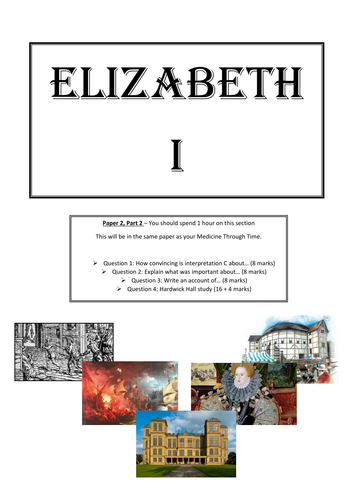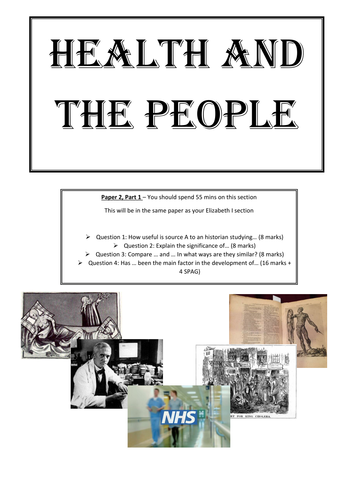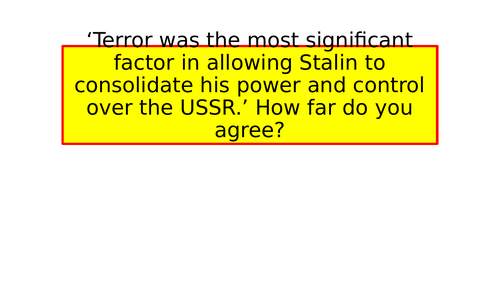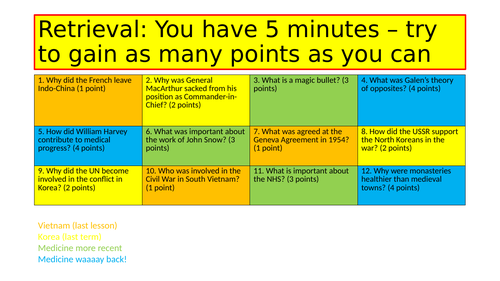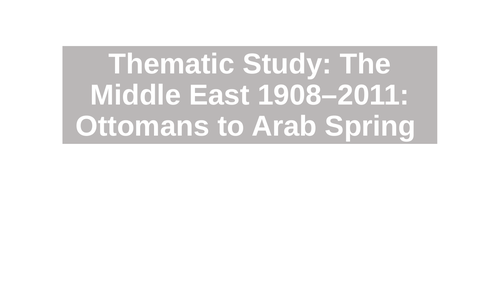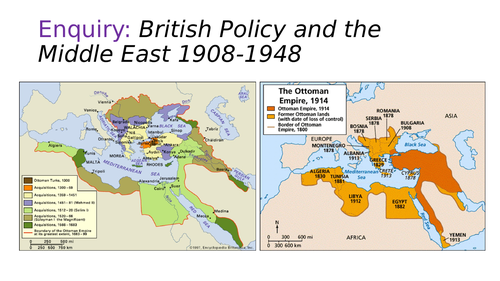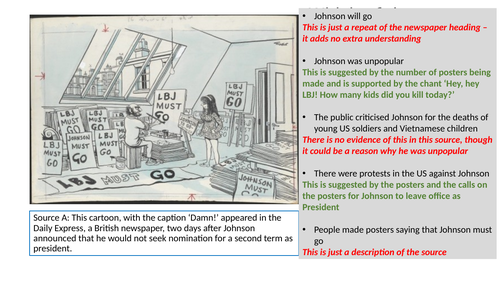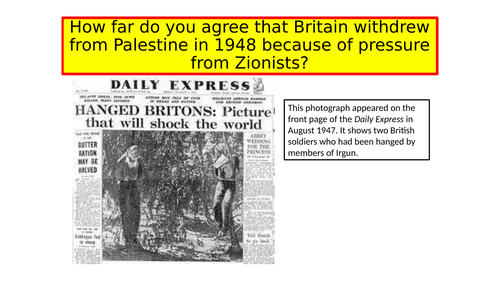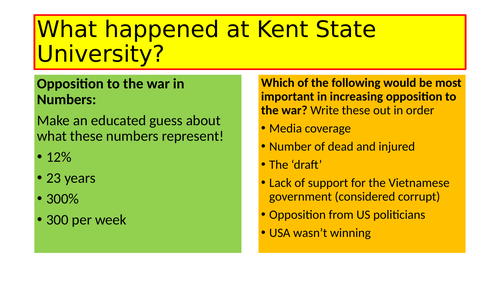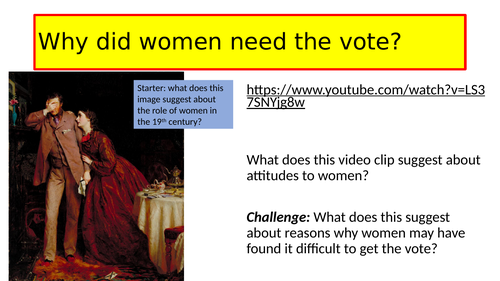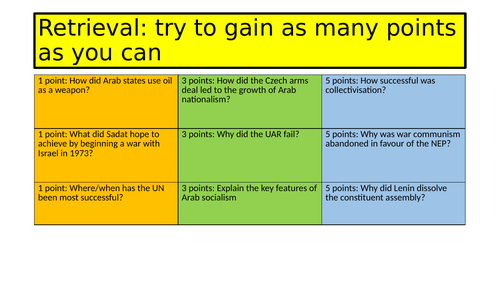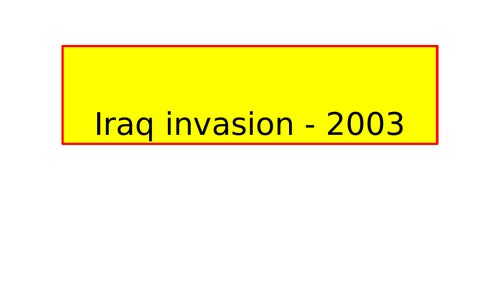
170Uploads
40k+Views
18k+Downloads

Russia - Stalin's consolidation of power (summary)
An A-level lesson to prepare students for writing an essay on how Stalin consolidated his power in the Soviet Union. Students will categorise information which clearly demonstrates the links between the different methods Stalin used to strengthen his position. Students will use the precise evidence offered to help them to reach judgements on statements about the importance of different methods in order to guide them towards making strong arguments in their essays which link the factors together.

Vietcong - how effective?
A lesson on the effectiveness of the Vietcong when fighting in the Civil War which broke out between North and South Vietnam. Students will gather evidence on four key areas: aims, support, tactics and supplies to understand how effective they were, and then practice adding their explanations as to why this would help the Vietcong. Students will finish by reaching a judgement on which area was the most important in helping them to fight effectively.

Introduction to the Middle East (Y321)
An A-level lesson for the OCR Y321 on the Middle East. This lesson is intended to act as an introductory lesson to allow students to gain an overview of some of the key events and therefore provide some contextual knowledge. Students will use the card sort and picture matching activity to produce a timeline of key events, and begin to consider the themes from the course by considering some key questions.

Middle East - British policy WWI
Two lessons on British policy in WWI. Focus of the lesson is on the depth study on British policy. Students will understand the competing claims to Palestine and the impact of British promises made during WWI to the different groups. Students will also begin to consider the motivations behind British policy in this area and the consequences and problems of these.

Vietnamisation - how successful?
A lesson for GCSE students studying the Vietnam war. Includes exam practice skills including for source questions (AQA 4 mark question) and write an account questions. Students will consider the circumstances under which Nixon decided on Vietnamisation, understanding why other options were not taken. They will create success criteria, so that they are able to analyse the successes and failures of the policy. Finally, with a focus on the write an account question, students will be required to put events into chronological order to form a narrative.

British withdrawal from Palestine, 1948 (Y321)
An A-level lesson based around the question: How far do you agree that Britain withdrew from Palestine in 1948 because of pressure from Zionists?
Students will use their existing knowledge to examine the role of long term causes such as the mandate and failure of British policy before examining short term causes during and after the Second World War. Students will categorise causes to create three key factors and detail evidence, explain the consequences, and analyse their causal role in the British decision to withdraw.

Kent State and the media (Cold War in Asia)
A GCSE lesson on the Cold War in Asia. This lesson focuses on the impact of the events at Kent State University, and links to the impact of the media on public opinion in the USA.
Students will carry out a source investigation to work out what happened at Kent State university, and use a video clip to support. To draw this together, students will consider a range of factors influencing public opinion in the US, and will make links between these factors. This will set students up for planning of a write an account question where students will write a ‘step by step’ guide with a focus on chronology and links, as per the requiremetns for 8 mark write an account questions. It concludes with some summary questions using numbered heads for students to reach judgements.

Why did women need the vote?
A lesson designed as an introduction to the suffragettes. Students will consider the problems facing women in the areas of attitudes, education, work and rights, and will gather evidence about these issues. Students will consider how the vote may improve women’s lives in these areas and will reach judgements about the biggest problems facing women in the 19th century. Finally, students will choose from one of two tasks which will require students to apply their understanding of both the problems women faced, and also the reasons why women wanted the vote.

Middle East - Treaty of Washington
An A-level lesson in which students consider the factors helping and hindering a peaceful settlement between Israel and Egypt. The lesson has been designed to fit within the students’ understanding of the role of the Great Powers in the Middle East, particularly the USA. This lesson does assume that students will have done some reading on the Treaty of Washington prior to the lesson, but this is not essential.
Students will use cards to understand the aims and motivations of Egypt, Israel and the USA, and will then consider the barriers to a settlement being reached. Students will reach a judgement on the importance of the US in the settlement.

Y321 - 2003 Iraq War
An A-level lesson which asks students to consider the causes and the consequences of the 2003 invasion of Iraq. The lesson ties to the theme of the roles of the Great Powers, but covers content from other themes also.
Students will create a storyboard to understand the sequence of events leading to the invasion, and will then analyse and evaluate the consequences of the invasion in order to prepare themselves for considering turning point question in particular. Students will finish by drawing connections to other conflicts in the gulf region to help with their thematic understanding.

